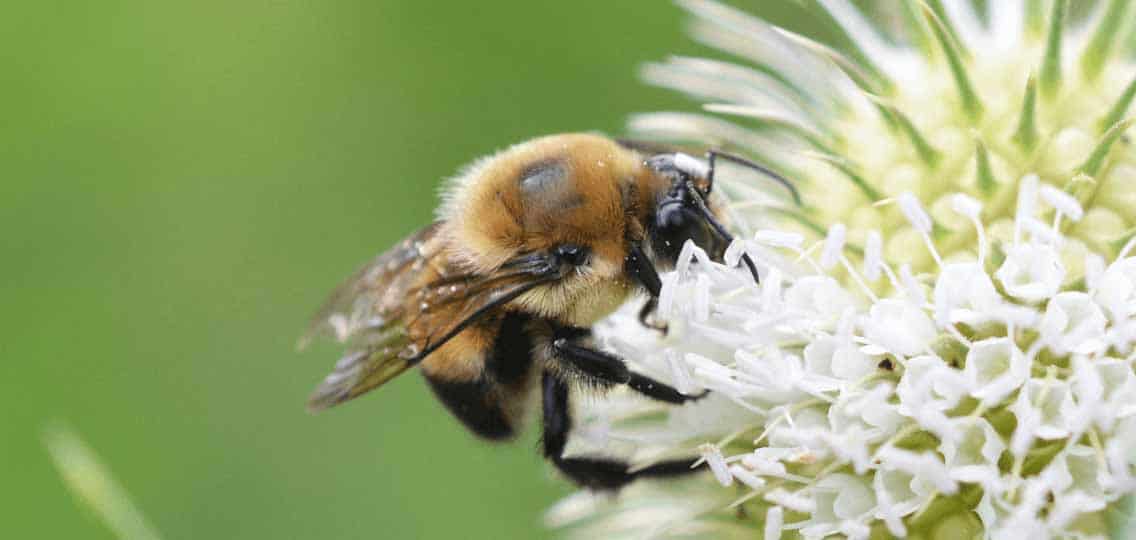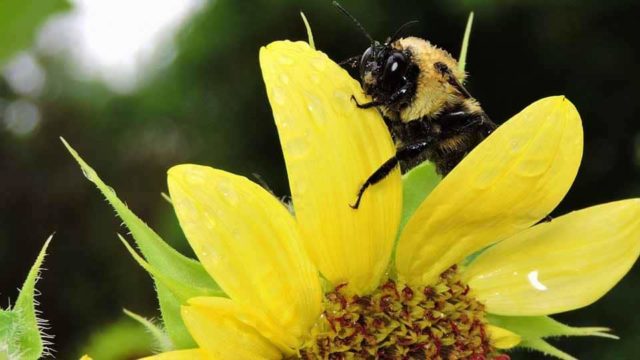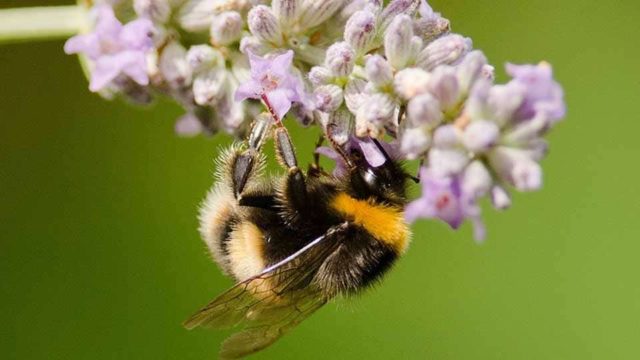While many of us are taking some time to quietly enjoy the sights and sounds of nature this summer, the buzz around the health of Canada’s pollinators just got a little louder.
The Pest Management Regulatory Agency (PMRA) announced its proposed plan to phase out the outdoor uses of two harmful bee-killing pesticides, Clothianidan and Thiamethoxam, because of the unsustainable risks they pose to aquatic invertebrates and the fish, birds, and other animals that rely on them as a food source.
While the announcement of a proposed phase-out comes as a significant step forward, it also confirms what we and our clients have known all along: Neonicotinoid pesticides are dangerous and pose grave risks to the environment.
Despite a growing body of scientific evidence that they harm pollinators and the environment, neonicotinoid pesticides continue to be approved for use and sale in Canada. This points to a larger, troubling pattern of behavior from the PMRA: Without adequate scientific study, these products have been allowed to enter the market where they have remained for sale and use — despite their environmental risks — for more than a decade.
It raises the question of whether the federal government doing enough to protect our environment when harmful pesticide products like these have been allowed to enter the market for sale and use.
Based on its recent actions, the answer is no.
Following a public consultation period and a final decision from the PMRA, which is not expected until January 2020, the phase-out of outdoor uses of Clothianidin and Thiamethoxam is expected to take place over 3-5 years. That means these pesticides will continue to be in use until at least 2023. That’s far too long to allow environmental harm to continue to aquatic invertebrates and to pollinator species which are already facing declines.
This isn’t the first time we’ve seen a lengthy phase-out proposed. In 2016, the regulator announced that the pesticide Imidicloprid would be phased out after a similar study revealed its negative effects on aquatic species.
We believe that the PMRA’s backwards practice of granting the registration of bee-killing neonicotinoid pesticides before receiving and reviewing the necessary science to determine whether they pose risks to the environment is not only sub-standard — it’s unlawful. The Pest Control Products Act requires the PMRA to have “reasonable certainty” that no harm will result to the environment from the use of neonicotinoid pesticides.
That’s why despite the PMRA’s latest announcement, we’re far from hanging up our hats when it comes to our ongoing litigation to protect pollinators. That case will see Ecojustice and our clients back in court this fall to fight for more rigorous reviews of toxic pesticides in Canada, particularly those with the potential to harm pollinators.
If successful, our case will prevent harmful pesticide products from entering the Canadian market for sale and use, while also holding the PMRA to account in its responsibility to protect the environment.
What we need now is for the government to uphold those standards and ensure that no harm comes to Canadians, our environment, or future generations from the use of dangerous pesticides. For more than two years, the federal government has attempted to delay our clients’ day in court, but we have prevailed at every turn and look forward to meeting them in court for a full hearing this fall.
Make sure you do not miss any breaking news about this case and our other work to defend nature by signing up to get email updates from Ecojustice.




